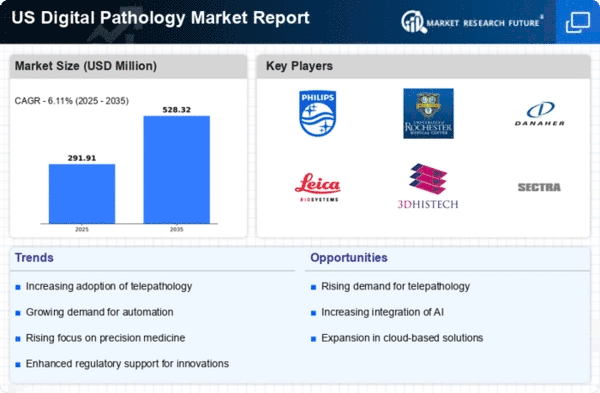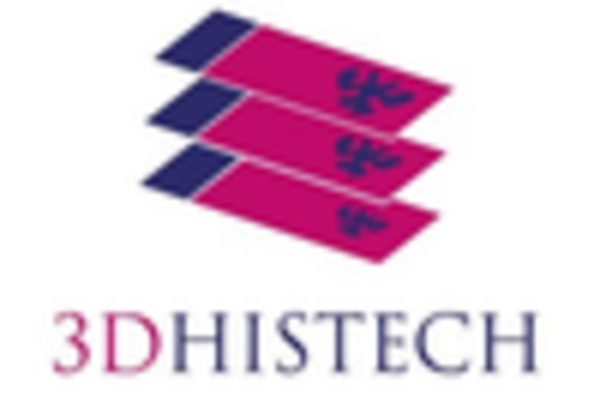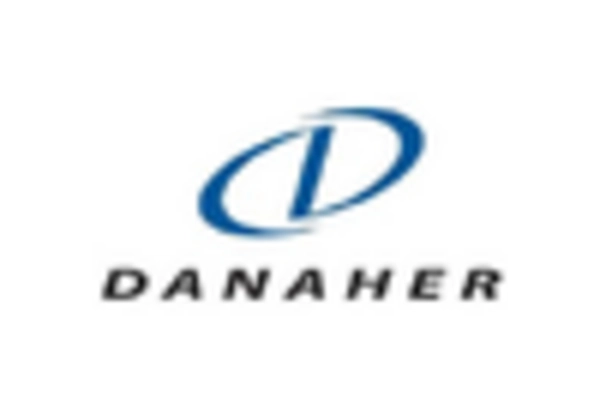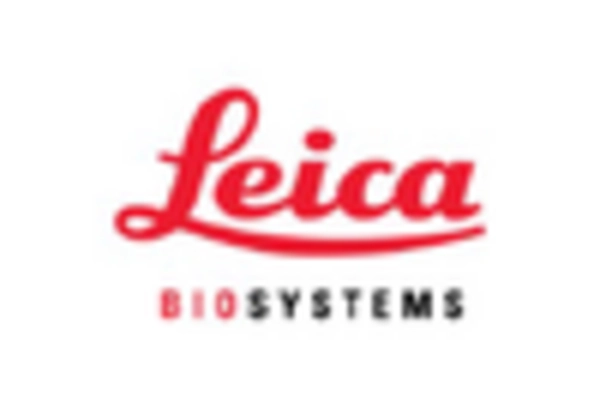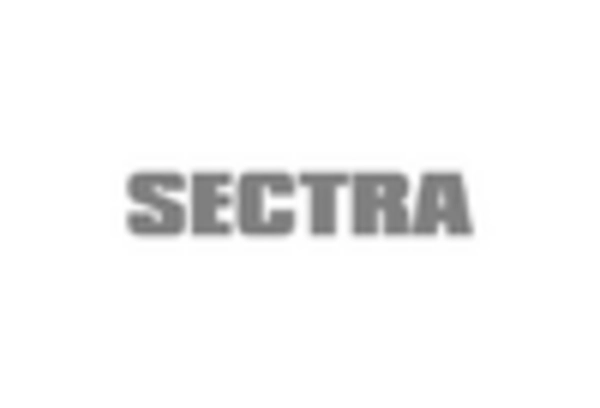Expansion of Educational Initiatives
The digital pathology market is benefiting from the expansion of educational initiatives aimed at training healthcare professionals in digital pathology technologies. As the adoption of digital pathology increases, there is a corresponding need for skilled personnel who can effectively utilize these advanced systems. Educational programs, workshops, and online courses are being developed to equip pathologists and laboratory technicians with the necessary skills. This focus on education is crucial for ensuring that the workforce is prepared to leverage digital pathology tools effectively. Market Research Future suggest that educational initiatives could lead to a 15% increase in the number of trained professionals in the field over the next few years. This expansion of educational initiatives is likely to enhance the overall growth and acceptance of the digital pathology market.
Integration of Artificial Intelligence
The integration of artificial intelligence (AI) into the digital pathology market is transforming the landscape of diagnostic pathology. AI algorithms are being developed to assist pathologists in image analysis, leading to faster and more accurate diagnoses. This technology can potentially reduce human error and improve efficiency in pathology labs. Recent studies suggest that AI can enhance diagnostic accuracy by up to 20%, which is a compelling reason for its adoption. As healthcare organizations recognize the value of AI in improving diagnostic processes, investment in AI-driven solutions is expected to surge. This trend not only enhances the capabilities of pathologists but also positions the digital pathology market as a leader in innovative healthcare solutions.
Rising Demand for Telepathology Services
The digital pathology market is experiencing a notable increase in demand for telepathology services. This trend is driven by the need for remote consultations and second opinions, particularly in rural and underserved areas. Telepathology allows pathologists to share high-resolution images and collaborate in real-time, enhancing diagnostic accuracy. According to recent data, the telepathology segment is projected to grow at a CAGR of approximately 15% over the next five years. This growth is indicative of the broader shift towards digital solutions in healthcare, as institutions seek to improve patient outcomes and streamline workflows. the digital pathology market is positioned to benefit from this rising demand, as healthcare providers increasingly adopt telepathology to enhance their service offerings.
Growing Focus on Data Management Solutions
The digital pathology market is witnessing a growing emphasis on data management solutions, which are essential for handling the vast amounts of data generated by digital pathology systems. Effective data management is crucial for ensuring the security, accessibility, and analysis of pathology data. As healthcare providers increasingly adopt digital pathology, the need for robust data management systems becomes apparent. Market analysis indicates that the data management segment is expected to grow by approximately 12% annually, driven by the need for compliance with regulatory standards and the desire for improved patient care. This focus on data management solutions is likely to enhance the overall efficiency and effectiveness of the digital pathology market.
Increased Investment in Research and Development
Investment in research and development (R&D) within the digital pathology market is on the rise, as companies seek to innovate and improve their product offerings. This trend is fueled by the need for advanced diagnostic tools and technologies that can meet the evolving demands of healthcare providers. R&D investments are likely to lead to the development of new imaging techniques, software solutions, and integrated platforms that enhance the capabilities of digital pathology systems. Recent reports indicate that R&D spending in this sector could increase by 10% annually, reflecting the commitment of industry players to drive innovation. This focus on R&D is expected to propel the digital pathology market forward, fostering advancements that improve diagnostic accuracy and patient outcomes.
.png)

